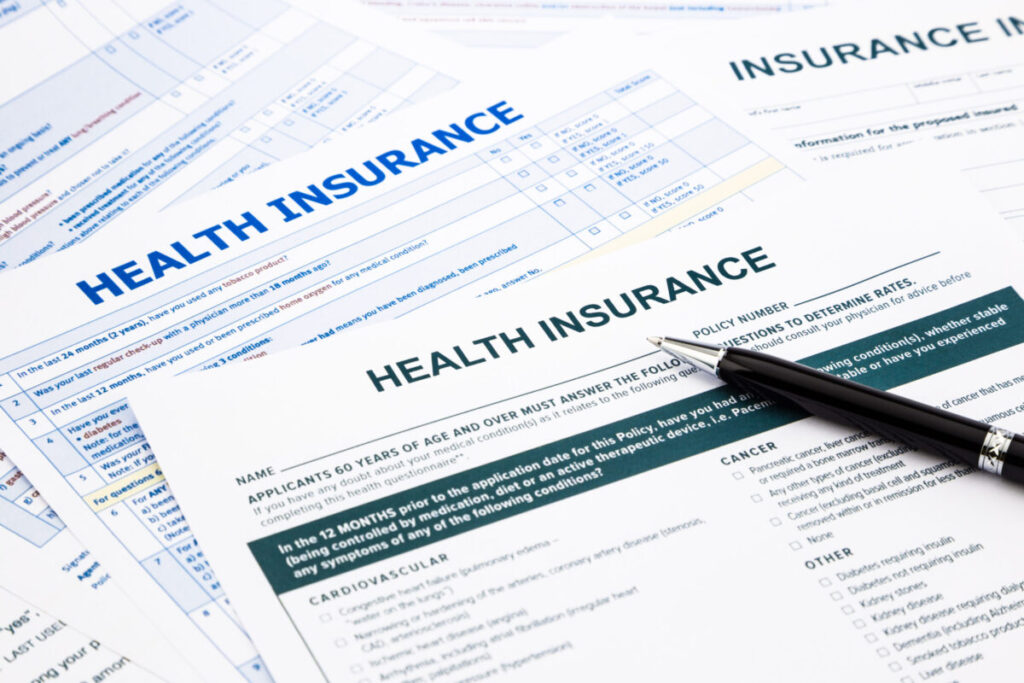The Biden Administration launched a special enrollment period (SEP) for uninsured individuals to sign up for health insurance coverage in the 36 states that use the federal marketplace (healthcare.gov). This move follows earlier actions by the 15 state-operated marketplaces that have already extended enrollment periods to give individuals and families more time to shop for and enroll in coverage.
Both actions are designed to address COVID-19 pandemic’s impact on rising unemployment and loss of employer-provided insurance. Typically, the annual enrollment season for health insurance coverage sold through the marketplaces runs from Nov. 1 to Dec. 15. Starting last year, state-based marketplaces (SBMs) took the lead to extend their enrollment capacity to help consumers economically impacted by the pandemic.
The health insurance marketplaces have extended open enrollment periods or opened new SEPs, providing access to health insurance during the ongoing public health emergency. Deadlines have been extended even further for many marketplaces in response to passage of the American Rescue Plan Act (ARPA), which took steps to increase the affordability of marketplace coverage. The extended enrollment periods give individuals and families additional time to learn about and access newly available marketplace subsidies (read more about coverage provisions included in APRA in this NASHP blog, American Rescue Plan Could Significantly Enhance Health Insurance Coverage. For more information about SBM enrollment period changes view this NASHP chart.
Without the SEPs, individuals could only enroll in coverage if they qualified for a special enrollment period triggered by a major life event (e.g., birth, death, marriage) or exceptional circumstance. States with SBMs have the flexibility and authority to set their own health insurance marketplace enrollment periods tailored to the needs of their populations and capacities of their insurers and insurance markets.
Opening enrollment eases the process for individuals to procure needed coverage, especially for the millions of individuals who have found themselves recently uninsured and navigating the unfamiliar landscape of buying coverage through the individual market. The 15 SBMs (14 states and Washington, DC) leveraged this authority last year to open SEPs in response to the pandemic, enabling over 300,000 individuals to enroll in health insurance at a time when economic and public health uncertainties were driving an acute need for coverage. (For more on SBM actions to open SEPs read the NASHP blog, Thousands Flock to Health Insurance Marketplaces as Coverage Shifts due to COVID-19.)
Exchanges Become Trusted Sources of COVID-19 Information
Beyond simply opening SEPs, SBMs are evolving as trusted sources of information and are using their platforms to amplify messaging related to COVID-19 testing, treatment, and vaccinations. At minimum, most SBMs have created new resource pages dedicated to sharing local and national updates related to the virus (read NASHPs blog, State-Based Marketplaces Lead in Increasing Access to Coverage during COVID-19). In other examples:
- MNsure’s Twitter page hosts state-branded reminders of the importance of masking;
- Your Health Idaho has used its Instagram page to promote information from Idaho’s vaccine advisory committee; and
- Maryland Health Connect interlaces messaging related to COVID-19 testing, treatment, and wellness with information detailing how to shop for coverage.
Most have also partnered closely with their departments of insurance to ensure coordinated messaging describing what is covered under an individual’s insurance plan, especially in relation to COVID-19 testing, treatment, and vaccination, such as Pennie’s (Pennsylvania’s marketplace’s) comprehensive COVID-19 FAQs, which make clear that customers should not pay any out-of-pocket costs for the COVID-19 vaccine.
SBMs are also looking for additional opportunities to leverage their community partnerships to help spread important messages, recognizing the importance of working with trusted community leaders especially at a time when face-to-face communication is limited.
For example, Washington, DC’s marketplace partnered with local agencies and community groups to host a virtual town hall addressing communities of color, COVID-19 vaccine mistrust, and insurance enrollment. The program was designed to help dispel misinformation and mistrust in the health care system, note the disproportionate impact of COVID-19 on communities of color, and stress the importance of enrolling in quality, affordable coverage.
As more information is available about COVID-19 vaccination and services in their states, SBMs are poised to help spread critical messages. Similarly, the National Academy for State Health Policy (NASHP) will continue to monitor and provide updated information as the SBMs wrap up their open enrollment periods, open new special enrollment periods, and increase their efforts to help address evolving COVID-19 needs.
Updated Aug 18, 2021
This chart describes the regular and special enrollment periods when individuals may sign up for health insurance coverage through either the federal marketplace (healthcare.gov, which 36 states use) or state-operated marketplaces (used by 14 states and Washington, DC).
| Marketplace | Original 2021 Open Enrollment Period | 2021 COVID-19 Special Enrollment Period (SEP) |
| Federally facilitated marketplace (36 states) |
Nov. 1 – Dec. 15, 2020 | Feb. 15 – May 15, 2021* |
| State-Operated Marketplaces | ||
| California | Nov. 1, 2020 – Jan. 31, 2021 | Feb. 1 – May 15, 2021 and April 12- Dec. 31, 2021** |
| Colorado | Nov. 1, 2020 – Jan. 15, 2021 | Feb.8 – Aug. 15, 2021 |
| Connecticut | Nov. 1, 2020 – Jan. 15, 2021 | Feb. 15 – April 15, 2021 and May 1- Oct 31, 2021 |
| DC | Nov. 1, 2020 – Jan. 31, 2021 | Jan.1, 2021 – Jan. 31, 2022*** |
| Idaho | Nov. 1 – Dec. 31, 2020 | Mar. 1- April 30, 2021 |
| Maryland | Nov. 1 – Dec. 15, 2020 | Jan. 1 – Aug 15, 2021 |
| Massachusetts | Nov. 1, 2020 – July 23, 2021 | |
| Minnesota | Nov. 1 – Dec. 22, 2020 | Feb. 16 – July 16, 2021 |
| Nevada | Nov. 1, 2020 – Jan. 15, 2021 | Feb. 15 – August 15, 2021 |
| New Jersey | Nov. 1, 2020 – Jan. 31, 2021 | Feb. 1 – Nov. 30, 2021 |
| New York | Nov. 1, 2020 – Dec 31, 2021 | |
| Pennsylvania | Nov. 1, 2020 – Jan. 15, 2021 | Feb. 15 – Aug. 15, 2021 |
| Rhode Island | Nov. 1, 2020 – Jan. 23, 2021 | Feb.1 – Aug. 15, 2021 |
| Vermont | Nov. 1, 2020 – Dec. 15, 2020 | Feb. 16 – Oct. 1, 2021 |
| Washington State | Nov. 1, 2020 – Jan. 15, 2021 | Feb. 15 – Aug. 15, 2021 |
*Heathcare.gov opened a special enrollment period as a result of President Biden’s Jan. 28, 2021 executive order designed to strengthen Medicaid and the Affordable Care Act enrollment.
**California will close its COVID-19 SEP on May 15, 2021 and will reopen a new, separate SEP in response to the American Rescue Plan Act (ARPA) on April 12, 2021.
***Washington, DC will extend its COVID-19 SEP through the last day of the DC Health Link Individual & Family 2022 Open Enrollment Period (January 31, 2022), unless the District of Columbia COVID-19 Public Health Emergency (PHE), as declared by the Mayor, is still in place on that date, in which case the SEP is available until the end of the month in which the PHE ends.




